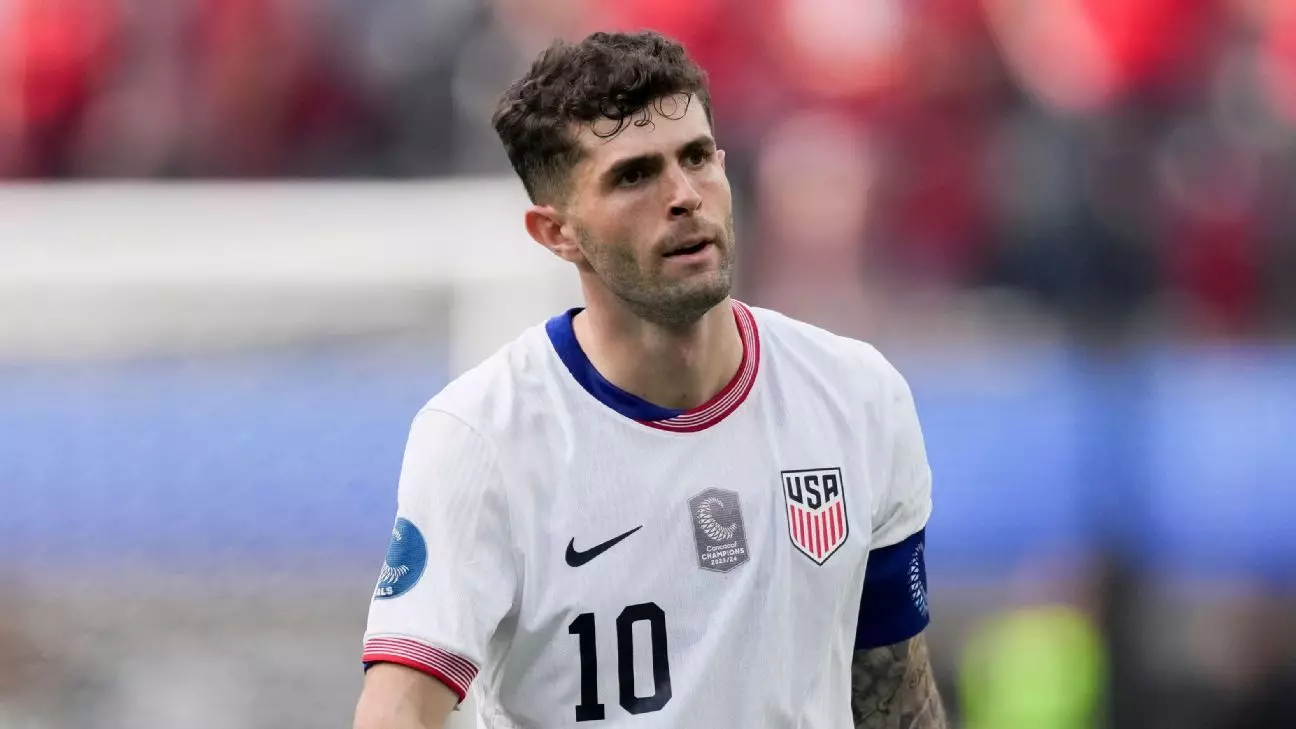In the high-stakes world of professional soccer, especially for athletes like Christian Pulisic, every decision seems to echo the weight of national pride and personal sacrifice. Discussions around his decision to skip the upcoming Gold Cup have ignited a debate that crosses the lines between personal well-being and patriotic duty. Recently, U.S. soccer legend Landon Donovan publicly criticized Pulisic, indicating that the younger player’s choice to rest after a grueling season with AC Milan was akin to shirking his responsibilities to the nation. However, the complexities of mental and physical health cannot be overlooked in this discourse.
Athletes are often superheroes in the eyes of fans, expected to perform even when their tanks are running empty. Donovan’s comments highlight a paradox: while he presents a romantic viewpoint of national representation—drawing a comparison to legends like Cristiano Ronaldo who push their limits—he appears to overlook the reality that constant exertion often leads to burnout. Pulisic’s decision to opt out for self-care deserves exploration, not just condemnation.
The Ripple Effects of Pulisic’s Decision
Even though criticism came swiftly, it’s essential to consider the potential ripple effects of Pulisic’s choice. Situations in sports often delineate an athlete’s physical resilience from their mental state, but we’re beginning to see a shift in recognizing their interconnectedness. By prioritizing rest, Pulisic sends a message that longevity in a career—sustaining peak performance for years to come—can sometimes overshadow the allure of representing one’s country at every opportunity.
Furthermore, with the FIFA World Cup looming on the horizon, there is significant pressure on U.S. players. The stakes are higher than ever, and decisions about readiness and health resonate deeply within both the individual athlete and the collective team. Mark Pulisic’s rebuttal to Donovan’s sentiment, referencing the sabbatical taken by Donovan himself, underscores the importance of self-care—even the most dedicated players must occasionally step back to rejuvenate.
A Generational Shift in Athlete Mindsets
What we are witnessing in the sports realm is indicative of a generational attitude shift among athletes. Acknowledging mental health as a legitimate concern in this strenuous arena is a monumental step forward. It challenges the antiquated expectations of sheer toughness that have historically dictated player behavior. For younger players like Pulisic—who are keenly aware of the physical injuries and psychological strains their predecessors faced—taking a step back can actually facilitate long-term growth and success.
Mark Pulisic amplified this discourse when he engaged with ChatGPT to reflect on Donovan’s sabbatical from soccer prior to the 2014 World Cup. This act itself illustrates a forward-thinking approach to exploring past decisions and learning from them. Socio-cultural growth often requires re-evaluation of past standards. Just as Donovan needed time to recharge and eventually re-emerge stronger, Pulisic’s choice exemplifies a proactive approach to maintaining well-being.
Critique and Education: The Role of Critics in Athlete Choices
Criticism unfurls in various forms, some constructive and some unnecessarily punitive. Former U.S. international Alexi Lalas chimed in, urging for more on-field camaraderie ahead of the World Cup. While this call for unity and teamwork is valid, it can be argued that championing a culture of understanding might be more beneficial. The world of professional sports is evolving, as is the conversation surrounding what it means to embody “team spirit.”
Encouraging players to assess their well-being should not be mistaken for abandoning commitment. Instead, it embodies a nuanced understanding of what it means to be both a competitive athlete and a responsible team member. By recognizing the individual athlete’s journey, critics can help create a healthier atmosphere, valuing both commitment and self-care as equally important aspects of a successful player.
As spectators, pundits, and fans, we are tasked with accepting that the path to greatness in sports is not solely a linear trajectory paved with visible sacrifices. In the pursuit of excellence, balance is paramount, and Pulisic’s choice serves as a powerful endorsement of valuing self-care in a highly demanding career.


Leave a Reply